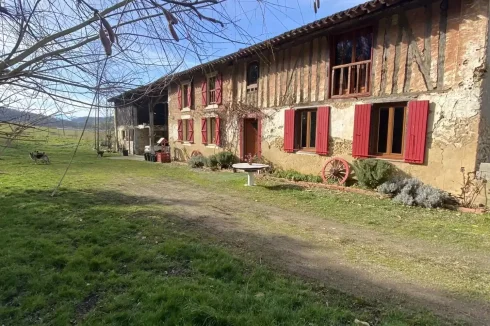France Sticks to Five Year Rule on Health Cover
Wednesday 01 February 2012
Internal documents reveal that France has comprehensively outwitted the EU over health cover reforms.
Despite the belief held by EU Commission that France had eased access into the health system for inactive early retirees, in fact documents obtained by us show that the five year residence rule remains in force.
Guidance sent to local health authorities last month by the health service national agency states that ''the expiration of an E106/S1 is not an automatic ground for granting access to the CMU, this event being foreseeable.''
The internal advice goes on to say that upon the expiry of their cover through an E106/S1 inactive early retirees should take out private health cover.
This directly contradicts the statements from the Commission that the whole purpose of the new Circular issued last June was to ease access arrangements for early retirees.
Readers will recollect that the Commission brought infringement proceedings against France (which they have not abandoned) precisely because they were denying early retirees access into the health system.
However, the Commission can hardly be blamed for giving France the benefit of the doubt, for the June Circular explicitly withdraws the previous 2007 guidance, which prevented inactive early retirees entering the system, and nowhere is there mention of a five year rule.
Under European law European nationals legally resident in France for at least three months are entitled to be treated in the same manner as French nationals, including unfettered access to the health system, the Couverture Maladie Universelle (CMU).
By all appearances the June Circular seems to reflect this rule, stating as it does that the EU nationals enjoy continuity of rights as between one country and another.
Indeed, this is also reflected on the website of the CMU, which could not be clearer. It states:
''Pour pouvoir bénéficier de la couverture maladie universelle de base, vous devez résider en France de façon stable et régulière.
La résidence stable est réputée acquise après 3 mois de résidence. Cette condition est applicable à tous, français ou étrangers.''
But the content of the June Circular is really no more than an oxymoron, leading to confusion even amongst many CPAMs many of whom have remained unclear of the policy in relation to inactive early retirees.
That is why they requested clearer guidance from the national agency, as part of which they submitted a series of questions, replies to which were included in the guidance that has been sent to them.
More generally, not only are many CPAMs confused, but it is clear from your reports at just how badly informed are some officials.
Tony Mason, of health insurance brokers Soficas, says he recently attended a meeting in Perigeux, organised by Angela Martyn (President North Eastern Dordogne Women's Association), and attended by around 70 British expats and senior health officials from the local CPAM.
''The officials were completely unaware of the June Circular, and expressed disbelief when on a show of hands around one-third of those present said they had been refused health cover'', he says.
Now, of course, it may well be convenient for officials to deny knowledge of the problem, but there is widespread evidence that many local officials are simply ill-informed.Medical Tourism
One of the other interesting aspects of the internal guidance is that it is clear the key factor behind the continued embargo is the fear by officials of ‘abuses’ of the health system, in particular, by those who relocate to France merely to obtain medical treatment. Officials seems obsessed by 'medical tourism'.
Accordingly, the guidance states EU regulations prevent the automatic refusal of early retirees, so each case must be examined on its merits, ''to prevent abusive behaviour and the need to consider in general the reasons for the transfer of residence to France.''
If the 5 year residence rule is to be enforced, it remains unclear just what a 'case by case' consideration of all applications is supposed to do, except to try and demonstrate at least perfunctory compliance with EU rules.
Mixed Picture
Not unexpectedly, most of you affected by this rule are reporting difficulties in getting into the health system.
Greater success seems to be being achieved by those of you with a serious pre-existing medical condition that prevents you obtaining private health insurance. In most cases a letter of refusal of insurance from a private health insurer does seem to be able to unlock the door.
Those of you claiming low-income as a reason for not being able to take out a private insurance policy are experiencing mixed success, as CPAMs seem to be making up their own rules about whether a private health insurance policy is 'too onerous'.
There are also other CPAMs who are simply ignoring the guidance from the centre (or seem blithely unaware of it) and continue to grant access to early retirees.
It is clear that a great deal of pressure is now being placed on the French authorities due to the high number of appeals that are being made, and the number of complaints that have been made to the European Commission.
Some of you are experiencing delays in the processing of your applications. This may not be due to intransigence by the authorities, but staffing pressures that are being experienced in many CPAMs.
Do keep us posted at [email protected].
Thank you for showing an interest in our News section.
Our News section is no longer being published although our catalogue of articles remains in place.
If you found our News useful, please have a look at France Insider, our subscription based News service with in-depth analysis, or our authoritative Guides to France.
If you require advice and assistance with the purchase of French property and moving to France, then take a look at the France Insider Property Clinic.





